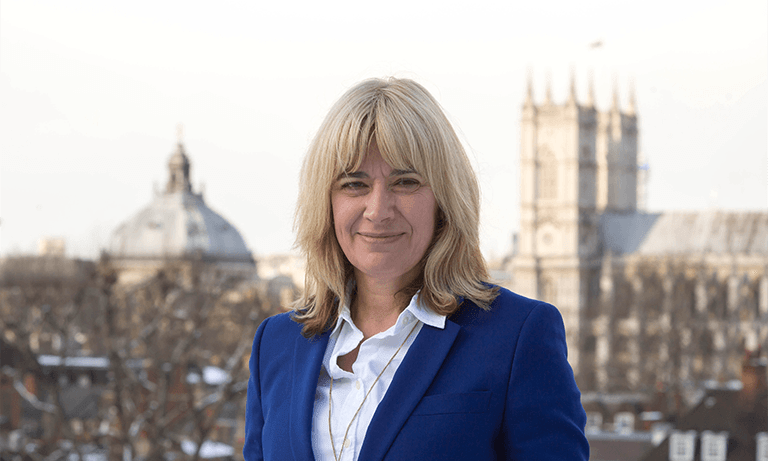Brucella canis: what vets need to know
14 Feb 2024
24 Apr 2021 | Chrstine Middlemiss
This year’s World Veterinary Day theme is the profession’s response to the Covid-19 crisis. In this blog, UK Chief Veterinary Officer (CVO) Christine Middlemiss pays tribute to government vets for working so hard through the challenges of recent times.

As we approach World Veterinary Day, I want to celebrate the important role that government vets have played this year to support the UK through these unprecedented times.
The year started with finalising EU exit preparations, followed by the Covid-19 global pandemic and the biggest avian influenza outbreak since records began. It has been the year of the A/B/C of things we all hoped would not coincide: Avian influenza/Brexit/Covid, and I want to thank the whole profession for your efforts and the vital role you played in response.
Recent challenges to global One Health have highlighted the key role government vets play to incorporate human, animal, plant and environmental health into one approach. From Covid to Avian influenza and the importance of climate change on disease vectors such as mosquitoes, government vets have shown the power of a One Health approach by building on existing communications, sharing lessons and using existing horizon scanning, outbreak structures and scientific advice, and creating a greater sense of togetherness that has reinforced our health provision and resilience.
They lead the way on multi-disciplinary approaches, working on longer-term joint programmes as well as emergency responses to improve animal and human health whilst looking after the environment.
We are in the middle of an unprecedented global health crisis caused by this zoonotic disease. The profession as a whole has undoubtedly been affected by, and had to adapt to, the crisis and lessons learnt from animal disease outbreaks have played a key role in controlling the spread of this pandemic.
Animal and Plant Health Agency (APHA) vets worked closely with public health authorities and veterinary stakeholders, using a One Health approach to deliver a rapid response and assist the UK National Health Service in detecting SARS-CoV-2 in humans.
APHA prepared for a potential reverse zoonotic transmission of SARS-CoV-2 from humans to the UK animal population. APHA developed a toolbox of reagents and tests used for diagnostic purposes and delivered an extensive research programme to better understand SARS-CoV-2. These tests allowed us to confirm the first case of SARS-CoV-2 in a pet in the UK, and we continue our collaboration with private veterinary surgeons to deliver the testing in suspect cases.
APHA’s laboratory scientists were deployed to national hubs to support the testing of SARS-CoV-2 in people. Subsequently, APHA supported the Covid-19 response, sharing their specialist skills in animal science, virology, data handling, epidemiology, risk assessment and modelling. This allowed government vets to closely monitor the emerging global situation and produce the UK risk assessment of SARS-CoV-2 in pets.
Government vets support international trade by representing our animal health and welfare internationally. Having international engagement and influence is crucial in terms of trade, particularly now that we are no longer part of the EU. Government vets have been busy representing the UK globally in a variety of forums, including the World Organisation for Animal Health, QUADS (US, Canada, Australia, New Zealand, UK).
Government vets also play a key role in market access and veterinary trade facilitation, and are busy engaging with other countries (like New Zealand, Canada and the US to name but a few) in veterinary certification issues to facilitate trade whilst protecting our high standards of biosecurity, animal health and welfare.
In the autumn, when we were reverting to some sense of normality, we detected avian influenza virus both in wild birds and poultry across the UK, leaving the country and its neighbours in the grips of bird flu. The scale and initial spread of infection was unprecedented and had substantial impacts for wild birds, poultry and bird keepers who had to comply with a series of countrywide measures to reduce the risk of spread. The outbreak, the largest of its type in the UK, had far-reaching effects including for international trade, but government vets played a central role in ensuring the outbreak was brought under swift control. This was a joint effort where all government vets and scientists worked together, including CVOs, scientists at Weybridge laboratory, APHA, Defra and the Food Standards Agency (FSA).
Government vets continue to be busy managing aspects of the Covid-19 pandemic, dealing with avian influenza outbreaks and leading on more effective animal health and welfare systems following EU exit: A, B & C all at the same time! Our rapid response to these simultaneous outbreaks has once again demonstrated our great preparedness, collaborative spirit (working with national and international partners), unparalleled scientific expertise and firm veterinary-based focus to continue the fight against animal and human diseases.
Get tailored news in your inbox and online, plus access to our journals, resources and support services, join the BVA.
Join Us Today